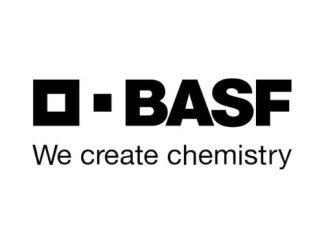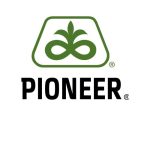The legislation applicable to agricultural equipment, haulage tractors, mobile cranes and other industrial equipment is covered by the National Road Traffic Act of 1996 and Regulations (NRTA).
This equipment includes drilling machines, mobile cranes, fork lifts, straddle trucks, roadmaking machines, earthmoving machines, excavation machines, construction machines and loading machines.
The agricultural vehicles are tractors and vehicles used for bona fide agricultural, horticultural, viticulture and pastoral purposes. Haulage tractors were added as a separate category a few years ago. A few definitions that clarify the different vehicle types include the following:
-
- ‘haulage tractor’ – A motor vehicle, designed or adapted mainly for drawing other vehicles, and with a gross combination mass exceeding 24 000 kg, but does not include a truck-tractor or tractor.
- ‘tractor’ – A motor vehicle designed or adapted mainly for drawing other vehicles and with a gross combination mass not exceeding 24 000 kg, but does not include a truck-tractor.
- ‘truck-tractor’ – A motor vehicle designed or adapted:
- for drawing other vehicles; and
- not to carry any load other than that imposed by a semi-trailer or by ballast,
- but does not include a tractor or a haulage tractor.
Most of the industrial equipment and agricultural equipment are not defined in the NRTA. The Minister of Transport may exempt vehicles from provisions in the regulations and the MEC of a province may exempt vehicles from provisions by way of an abnormal vehicle permit.
An important provision in the NRTA determines that every motor vehicle shall, whether or not it is operated on a public road, be registered by the title holder (financial institution). The owner is responsible for licensing the vehicle and displaying the disc and number plate.
This applies to any motor vehicle that fits the description of motor vehicle and trailer. Any self-propelled vehicle with wheels is regarded as a motor vehicle and although a trailer does not have an engine, it is also included. Any device on wheels that is designed to be drawn by a motor vehicle is a trailer. This includes mowers, harvesters and many other implements used by producers.
There are a few exemptions in regulation 5 of the NRTA that are often misunderstood by the farming community. The two most notable ones read as follows:
A motor vehicle –
(1c) which is not –
(i) self-propelled;
(ii) a caravan;
(iii) designed principally for the conveyance of persons or goods, or both; and
(iv) operated on a public road;
(d) which by reason of its dimensions or the mass thereof or the mass of a part thereof may not be operated on a public road in terms of the act, and which is not so operated;
shall be exempt from registration and shall not be registered in accordance with the provisions of this Part:
(2) For the purposes of sub regulation (1) (c), the words ‘operated on a public road’ shall not be so construed to include the presence of such motor vehicle on a public road for the purpose of –
(a) being driven to the premises of the owner in order to take delivery thereof;
(b) crossing a public road from the one premises of the owner to another over a distance of not more than one kilometre; or
(c) proceeding to or from a place where repairs are to be or have been affected to such motor vehicle.
If a motor vehicle exempt in terms of sub regulation (1) (c) is operated on a public road contrary to the provisions of sub regulation (2), the title holder of such motor vehicle shall be liable for the registration thereof on the date referred to in regulation 7 (1) (a) (vii).
Please note that all four the requirements listed under paragraph (c) above must apply before the vehicle is not required to be registered and licensed. The mere fact that a vehicle is not used on a public road does not qualify it for exemption.
This exemption further only applies to the registration and licensing of a vehicle and does not cover the drivers of the vehicles for purposes of holding a driving licence when using the vehicle on a public road.
If a vehicle that is over height or too heavy is used on a public road, the owner must obtain an abnormal permit for the vehicle through a process referred to as a principal approval before it is registered and licensed. The owner may then apply for a special classification. The vehicle may then only be operated in terms of an abnormal permit issued by the MEC of the specific province where the vehicle is used.
A tractor used only on a farm may be specially classified. A tractor that is also used on a public road (not for the one-kilometre provision) must pay normal licence fees. The tractor may then be used on public roads.
A vehicle which is not a tractor, motorhome or a caravan and which has not been originally designed or adapted for the conveyance of persons, excluding the driver and, in the case of a motor vehicle the gross vehicle mass of which exceeds 3 500 kilograms, excluding the driver and one passenger, or goods, or both may apply to the MEC for special classification. This reduces the licence fees that must be paid annually.
Certain types of equipment are exempt from requirements concerning equipment and dimensions. It covers brakes, lamps, reflectors, indicators and several specific provisions such as windscreens and seat belts. The most notable exemption is the width of the vehicles. Equipment of up to 4,5 m wide may be operated under certain conditions.
There are no exemptions for overloading of vehicles and axles or for maximum height of vehicles.
The conditions for use of these vehicles are that the vehicle shall only be operated on the roadway of a public road during the period between sunset and sunrise and while visibility is bad. The driver must stop or drive off the roadway if it is necessary to allow other vehicles to pass. These vehicles may not drive on a freeway.
This article only covers the key issues relating to agricultural and industrial equipment. It is advisable to obtain more detailed advice if an owner is unsure as to the legality of a vehicle on a public road.
For more information contact Alta Swanepoel and Associates CC by sending an email to alta@altaswanepoel.co.za.



















